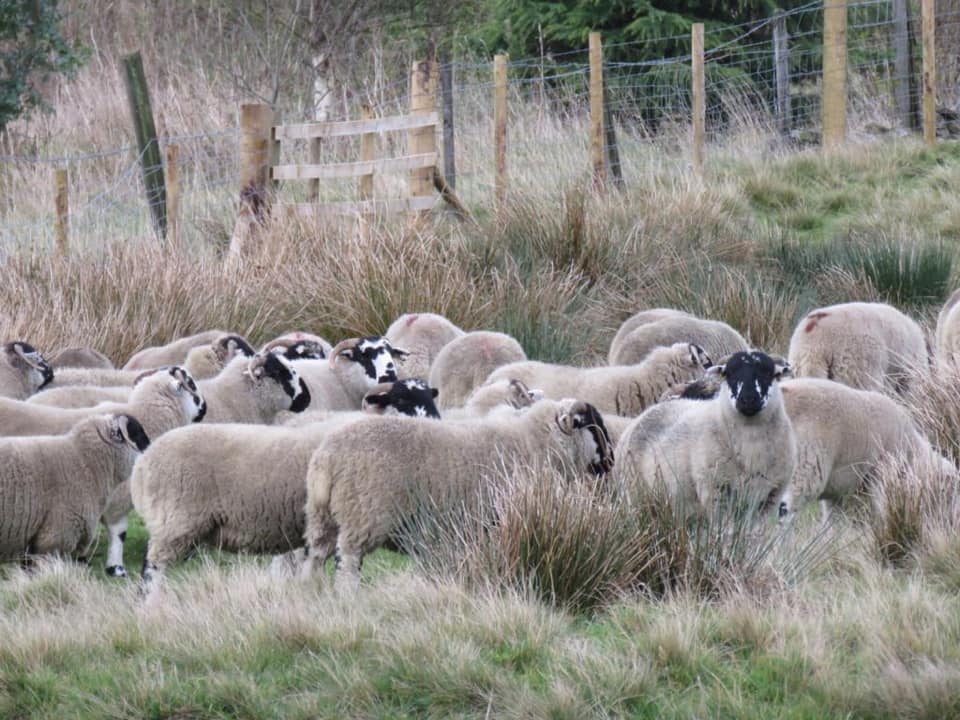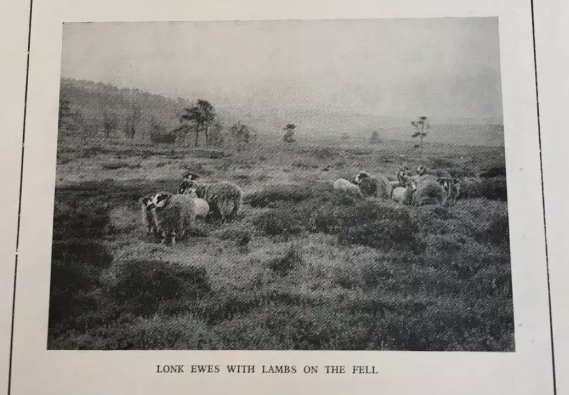Why keep Lonk Sheep?
Breeding Lonk sheep offers multiple benefits.
Lonk sheep are therefore an excellent choice for farmers, conservationists, and heritage enthusiasts.
As a hardy, native British breed, Lonks are well-suited to upland environments.
They also contribute to sustainable land management by maintaining natural habitats and promoting biodiversity.
Their grazing helps prevent overgrowth, which can improve soil health and support a wider range of wildlife.
Lonks are also highly resilient, requiring minimal intervention, which aligns well with regenerative agricultural practices and environmental stewardship schemes.
Furthermore, preserving Lonk sheep supports the conservation of a breed with centuries-old heritage, contributing to the cultural history of British livestock farming.
Breeding Lonks, therefore, not only enhances farm productivity but also aligns with eco-friendly policies and heritage preservation efforts.

Eligibility for Environmental Schemes
The Rare Breed Supplement
If you’re looking for the perfect sheep for the Rare Breed Supplement, Lonk sheep are an ideal choice.
The Rare Breed Supplement (SP8) under the Countryside Stewardship Scheme/Sustainable Farming Incentive, offers farmers a valuable opportunity to support both sustainable farming and conservation.
As a hardy, native British breed classified as “at risk,” Lonks are eligible for this supplement, which provides financial incentives for maintaining rare breeds in upland environments.
Breeding Lonk sheep not only helps preserve a historic, environmentally resilient breed but also enables farmers to benefit from government grants that promote biodiversity and protect genetic heritage in farming.
SPM2: Keep native breeds on grazed habitats supplement (50-80%)
If you’re looking for the perfect sheep for the Rare Breed Supplement, Lonk sheep are an ideal choice.
The Rare Breed Supplement (SP8) under the Countryside Stewardship Scheme/Sustainable Farming Incentive, offers farmers a valuable opportunity to support both sustainable farming and conservation.
As a hardy, native British breed classified as “at risk,” Lonks are eligible for this supplement, which provides financial incentives for maintaining rare breeds in upland environments.
Breeding Lonk sheep not only helps preserve a historic, environmentally resilient breed but also enables farmers to benefit from government grants that promote biodiversity and protect genetic heritage in farming.
SPM3: Keep native breeds on grazed habitats supplement (more than 80%)
The SPM3 supplement is a government initiative designed to support farmers and land managers in conserving the UK’s native livestock breeds by maintaining their presence on grazed habitats.
To qualify, at least 80% of the grazing livestock must be native breeds, such as Lonk sheep, which are well-adapted to challenging environments.
These breeds play a vital role in maintaining biodiversity, enhancing soil health, and managing landscapes sustainably.
By participating in this scheme, you not only help preserve the genetic heritage of these hardy animals but also receive financial support to continue using them in traditional, low-input farming systems that protect and enrich the natural environment.
FAQ’S
Why are Lonk Sheep the perfect choice for the Rare Breed Supplement?
Lonk Sheep are an excellent candidate for the Rare Breed Supplement due to their status as a heritage breed with significant cultural and agricultural value. As a traditional breed native to Northern England, they are critical to preserving biodiversity in upland farming systems. Their hardy nature, adaptability to challenging terrains, and high-quality wool and meat make them an essential part of sustainable farming practices. Supporting Lonk Sheep through the Rare Breed Supplement helps ensure their conservation, promotes genetic diversity, and sustains the livelihoods of farmers maintaining these iconic flocks.
How Do I Get My Lonk Sheep Registered?
To register your Lonk Sheep, you need to follow these steps:
Join the Lonk Sheep Breeders’ Association (LSBA):
Membership is required to register your sheep. You can apply by completing a membership form aby contacting the association Secretary or Treasurer directly.Meet Registration Criteria:
Ensure your sheep meet the breed standards set by the LSBA. This typically includes verifying their lineage, physical characteristics, and health status.Pay Registration Fees:
There is usually a small fee for registering each sheep. Confirm the cost with the LSBA when applying and an invoice will be issued to you by the Registrar’s on the day.Book in the Registrars:
Call the designated Registrar’s to arrange a time for them to come and Register your Lonk Sheep.
Why should I keep Lonk Sheep as part of my farming practice?
Hardiness and Adaptability:
Lonk Sheep are incredibly resilient and thrive in challenging upland environments. Their ability to graze on rough terrains makes them an excellent choice for maintaining natural landscapes.Low Maintenance:
These sheep are known for being self-sufficient and requiring minimal intervention. Their natural hardiness reduces the need for intensive care.Dual Purpose Breed:
Lonk Sheep provide both high-quality meat and good wool, making them a versatile option for farmers interested in diverse income streams.Excellent Maternal Traits:
Ewes are known for their strong maternal instincts and high lamb survival rates, making them ideal for breeding programs.Conservation and Heritage Value:
Keeping Lonk Sheep helps preserve a rare, traditional breed with deep roots in British agricultural history, contributing to biodiversity and cultural heritage.Support for Sustainable Farming:
Their efficiency in converting rough forage into quality products makes them a sustainable choice for eco-friendly farming practices.
Why should I choose Lonk Sheep over another Hill Breed?
At the end of the day, we know it is completely personal taste!
If you’re looking for a sheep which:
- has superior wool quality
- is an efficient grazer
- has exceptional has cultural and conservation value:
- strong maternal traits
Than the Lonk Sheep is for you.
Not only that, their distinctive appearance with their striking black-and-white faces and sturdy frame, they stand out aesthetically and are highly recognisable compared to other Hill Breeds.
While all hill breeds have their merits, Lonk Sheep offer a compelling mix of adaptability, sustainability, and heritage value, making them an excellent choice for both traditional farmers and conservation enthusiasts.
Why not keep Lonk Sheep alongside other Hill Breeds?
It doesn’t have to be a choice of one breed over another!
Keeping flocks of both Lonks and other hill breeds, like Swaledales or Cheviots, can offer the best of both worlds.
Each breed brings unique benefits—Swaledales are renowned for their hardy meat production, and Cheviots excel in high-yield wool, while Lonks combine these traits with versatility and conservation value.
A mixed flock allows you to diversify your farm, meet various market demands, and contribute to the preservation of multiple heritage breeds.

